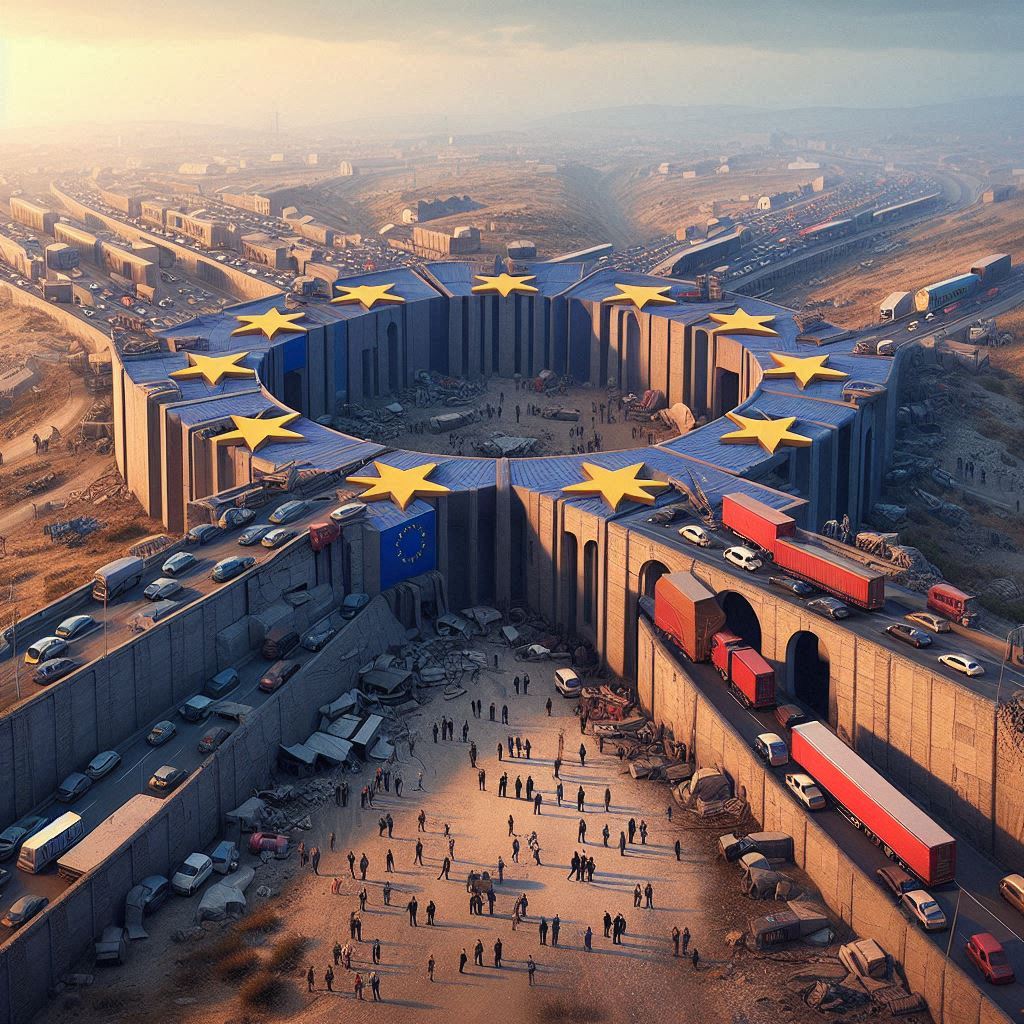How many speeds for Europe?
A proposal by VISION

Article by Francesco Grillo
Who will steer the European Union through one of the most relevant chapters of its history? Paradoxically, the only person assured a central role at the top of EU institutions in the next semester is Viktor Orbán, the Prime Minister of Hungary. Hungary has just assumed the rotating presidency of the Council of the European Union, and Orbán, who has often enjoyed disrupting the game, will now be controlling it. Orbán, a symbol of the rapid enlargement celebrated twenty years ago, is now a key figure in an EU that needs to find a way to expand without losing relevance. This challenge demands an innovative response that can pragmatically transcend ideological divisions that no longer make sense.
As Stanley Pignal, the Brussels correspondent for The Economist, recently observed, Orbán is uniquely positioned to attempt to "cook up" solutions in a team that is currently short on recipes for emerging from the crisis. The two engines of the Union, France and Germany, are politically weakened; Ursula von der Leyen must seek a difficult majority in the European Parliament (1). And it is ironic that Orbán assumes this role at one of the most delicate moments in the EU's history. In November, his friend Donald Trump might leave us facing a completely new context, with another friend of the Hungarian President, Vladimir Putin, threatening to shatter our remaining certainties.
As a matter of fact, Orbán has long embodied the contradictions of a powerful but fragile Union. He exemplifies how decision-making methods based on unanimity reward those who obstruct. Yet, it is not only Orbán who has exploited European weaknesses: Ireland blocked the completion of the European market with uniform corporate tax rates; French and Dutch citizens rejected the idea of a true EU Constitution; German constitutional judges have been the most serious obstacle to completing the monetary union; and Italy, a founding member, has not approved the reform mechanism for bank or state failures. This structural problem confronts the Union with a difficult choice: should we abandon the ambition to become ever larger, or resign ourselves to being insufficiently cohesive and slow to respond to increasingly severe and frequent crises?
Many advocate for abandoning unanimity, but such a solution would only postpone the problem without resolving it. A sovereign state, even if outvoted, retains the ability to distance itself from decisions it does not support (especially when it comes to decisions about military engagement). Agreement between members of the club does not necessarily correlate with the seniority of their membership. Founding countries are not necessarily more likely to agree amongst them as the relationship between France and Italy demonstrates. Lastly, the idea of multiplying the "variable geometries" that already structure the Union into policies by subgroups of the 27 member states - such as the monetary union area and the free movement area - has the flaw of perpetuating incomplete and therefore suboptimal integrations.
However, a completely different proposal will be discussed in mid-September at a major conference in Siena, bringing together the think tanks of the five largest European political parties. The idea is articulated in three points.
- First, states would voluntarily join specific projects involving complete sharing of certain competences. For example, in digital policies, one could envision creating a single agency to replace redundant national ones.
- Second, decisions should often be legitimized by popular consultation, especially on immigration policies, where having a unified border and management tools makes sense but requires public support in each country.
- Finally, these integrations should include predefined exit mechanisms to avoid locking countries into arrangements that outlast mutual interest or agreement.
This approach would enable Europe to manage conflicts and differences without resorting to low- ball negotiations or sterile opposition. It would be an EU capable of expanding not just to the Balkans but also to North Africa (as it already does with Turkey in the common market) and to the UK in defense and research policies. This could be the approach to transform the long-standing issue of being neither "fish nor fowl" into the flexibility required by this rapidly evolving century.
(1) Even Kaja Kallas, the Prime Minister of Estonia, who has been designated as the High Representative for Foreign Affairs of the Union, will need to secure a majority. The situation is different for Antonio Costa, the former Prime Minister of Portugal, who has been designated as the President of the European Council and does not require approval from the Council; however, Costa will take office at the end of 2024.
Rerences:
European Commission. (2024). "The presidency of the Council of the EU". Link
Politico. (2023). "Viktor Orbán's Plan for Europe". Link
Euronews. (2024). "Will Orbán Continue to Go Against the EU Grain as Hungary Takes Over Bloc’s Presidency?". Link
CNBC. (2024). "Hungary's Populist Orbán to Take Over EU Presidency". Link

